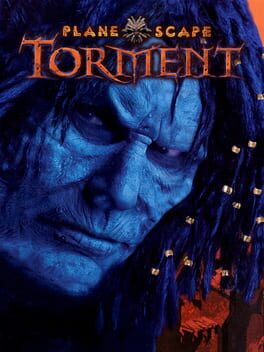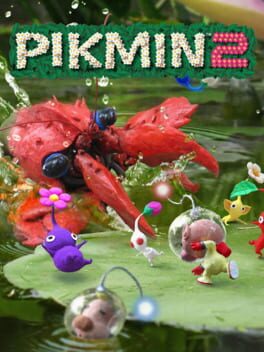Thomas_Hatch
Favorite Games
007
Total Games Played
000
Played in 2024
000
Games Backloggd
Recently Reviewed See More
Snoot Game is a very interesting cultural phenomenon. A meme game parody made by 4chan that outshines its source material, not just because it's funny and competently made, but also it also has a surprisingly heartfelt story and message. The writing is competent, its character art is okay to good, the characters are engaging, the music is surprisingly good, and it can be pretty funny. It kind of sucks you in. But what truly sets Snoot Game apart is its ability to go into profound themes that comment on attitudes of the modern era in a unique way.
This is the type of delicate story only an independent work could tell. Mainstream media sure as hell wouldn't tackle controversial and nuanced takes on modern issues like Snoot Game does. At its heart is Fang, a character who grapples with her identity. She believes herself to be non-binary. In Goodbye Volcano High, that's it. That's her purpose. Fang = non-binary, that's why she exists as a character. But in Snoot Game, Fang believes herself to be non-binary, only to realize it was a temporary phase in her journey of self-discovery.
Importantly, Snoot Game doesn't cast judgment on transgender people as a group, a fashion, or an ideology. It treats Fang as one person who represents herself, an individual. But her story with Anon does questions the rigid and dogmatic attitudes that surround discussions on gender. Fang's narrative reflects the real-life experiences of many young people who experiment with various labels in their youth, transgender or otherwise, only to later shed them as they deepen their understanding of themselves. Exploration of gender identity is, in a sense, a form of fashion. It's something a person can adopt and discard as their understanding of themselves evolves. That isn't to say it isn't real. Your fashions and labels you choose to adopt may end up being some deeply profound part of you that you'll want to carry with you for a long time. But most young people who struggle with gender identity come out of it believing they're not trans or non-binary after all. It would be very unwise to cast aside and ignore the growing trend of people using gender identity as fashion, and the growing number of detransitioners. There's something to learn from them, and their stories are worth telling.
But all that isn't even the real point of Snoot Game. Anon doesn't think poorly of Fang for her non-binary self-identity at all, only insulting her over it very briefly after meeting and she makes a scene over him misgendering her, and in the second-worst ending of the game, where Anon and Fang both failed to change and grow as people.
The real message in Snoot Game is clear: Our identities are complex and multifaceted, and they extend far beyond the confines of labels we may adopt. What truly defines us are our attitudes and actions, which evolve as we muddle through the intricacies of our lives and the world and people all around us. Snoot Game encourages us to embrace the fluidity of our identities and to not worry too much about limiting labels that may or may not authentically represent our inner selves.
Anon, our focal character, presents a different kind of message, though a harmonious one. He's the typical modern-day misanthrope. An outcast, a loser, a guy that shitposts and trolls online. Anon is a very flawed character to start with, and he has a lot to learn. But isn't it usually the outcast who challenges conventional notions of respect, friendship, and human connection? Anon's perspective on gender identity stands in stark contrast to Fang's. He doesn't believe in the whole transgender thing, he barely even understands it and he sees Fang for her innate femininity, barely recognizing her non-binary persona. And they don't really challenge each other on this outside of Fang calling him a bigot a few times, so they don't really try to change each other's minds on the issue. So how can he form a bond with her? His outlook clashes with the prevailing attitudes that total ideological alignment is a prerequisite for closeness. As if that's the benchmark for love and respect. Give it any thought and you'd come to the conclusion that it isn't. Snoot Game rejects that idea outright. Just because someone believes in the same gender stuff as you doesn't mean they're going to treat you right. Just because someone doesn't believe in the gender stuff you do doesn't mean they're going to treat you wrong.
Anon may not share Fang's beliefs, but his actions speak volumes about his respect for her as a person. He goes out of his way to bring happiness into her life, enjoying her company, trying to make her smile, taking joy in her successes, comforting her when she's low or vulnerable, and actively supporting her deepest dreams and aspirations. Anon's genuine desire to be there for Fang shows a deeper connection that transcends labels, fashions, ideologies, or whatever else. It's important to recognize that Anon is never trying to fix Fang. He's not going on Ben Shapiro type rants about how her identity is invalid or something like that. He's supporting her as she figures herself out.
The dynamic between Fang and Anon underscores the game's idea that true love and respect grows out of actions and attitudes, not fashions or ideologies. If you're willing to reach out, show kindness, and care. Anon sees nothing but beauty in Fang's heart and soul and it draws him out of his shell. He's ready and willing to nurture Fang's spirit and provide companionship and comfort for her, and by accepting that he can love someone, through all the trials that puts him through, he becomes a better man for it. That's why she ends up falling in love with him in return. And what's more important than love? I don't think anything is. Human beings are far, far more than their gender identities, and love is far more encompassing than agreement on fashions or ideologies. Deep, sincere love can exist between people who hold differing beliefs and world views, and Snoot Game seems to highlight that. Just because someone is very different from you, doesn't mean you can't become close. It's all about how they treat you. Really treat you.
Snoot Game, at its core, is a journey of self-discovery, winding and complex through Anon and Fang's evolution. Yet they also shows that human bonds transcend labels when they're rooted in care and goodwill. Their arcs represent the dialects of coming together in harmony. Our identities and beliefs constantly shift as we grow. Change is the only constant. Yet love persists throughout those transformations when you focused on nurturing the spirits of the people you care about, not controlling anyone's mind.
One more key theme of Fang and Anon's dynamic is in mutual understanding emerging by embracing each person's quirks and complexity, not demanding conformity. Shared hopes, vulnerability, and support resonate deeper than sharing ideologies. In a fractured world, Snoot Game has hope that common humanity can overcome division when we open our hearts, whether you're old-fashioned or new-fashioned, we should be able to respect each other and come together. Perspectives differ, but kindness is a universal language. The game's ultimate message seems to be that life's richness blooms through supporting others' growth, not judging differences. Our shared longing for purpose binds us. And most importantly of all, Fang's snoot is very boopable.
This is the type of delicate story only an independent work could tell. Mainstream media sure as hell wouldn't tackle controversial and nuanced takes on modern issues like Snoot Game does. At its heart is Fang, a character who grapples with her identity. She believes herself to be non-binary. In Goodbye Volcano High, that's it. That's her purpose. Fang = non-binary, that's why she exists as a character. But in Snoot Game, Fang believes herself to be non-binary, only to realize it was a temporary phase in her journey of self-discovery.
Importantly, Snoot Game doesn't cast judgment on transgender people as a group, a fashion, or an ideology. It treats Fang as one person who represents herself, an individual. But her story with Anon does questions the rigid and dogmatic attitudes that surround discussions on gender. Fang's narrative reflects the real-life experiences of many young people who experiment with various labels in their youth, transgender or otherwise, only to later shed them as they deepen their understanding of themselves. Exploration of gender identity is, in a sense, a form of fashion. It's something a person can adopt and discard as their understanding of themselves evolves. That isn't to say it isn't real. Your fashions and labels you choose to adopt may end up being some deeply profound part of you that you'll want to carry with you for a long time. But most young people who struggle with gender identity come out of it believing they're not trans or non-binary after all. It would be very unwise to cast aside and ignore the growing trend of people using gender identity as fashion, and the growing number of detransitioners. There's something to learn from them, and their stories are worth telling.
But all that isn't even the real point of Snoot Game. Anon doesn't think poorly of Fang for her non-binary self-identity at all, only insulting her over it very briefly after meeting and she makes a scene over him misgendering her, and in the second-worst ending of the game, where Anon and Fang both failed to change and grow as people.
The real message in Snoot Game is clear: Our identities are complex and multifaceted, and they extend far beyond the confines of labels we may adopt. What truly defines us are our attitudes and actions, which evolve as we muddle through the intricacies of our lives and the world and people all around us. Snoot Game encourages us to embrace the fluidity of our identities and to not worry too much about limiting labels that may or may not authentically represent our inner selves.
Anon, our focal character, presents a different kind of message, though a harmonious one. He's the typical modern-day misanthrope. An outcast, a loser, a guy that shitposts and trolls online. Anon is a very flawed character to start with, and he has a lot to learn. But isn't it usually the outcast who challenges conventional notions of respect, friendship, and human connection? Anon's perspective on gender identity stands in stark contrast to Fang's. He doesn't believe in the whole transgender thing, he barely even understands it and he sees Fang for her innate femininity, barely recognizing her non-binary persona. And they don't really challenge each other on this outside of Fang calling him a bigot a few times, so they don't really try to change each other's minds on the issue. So how can he form a bond with her? His outlook clashes with the prevailing attitudes that total ideological alignment is a prerequisite for closeness. As if that's the benchmark for love and respect. Give it any thought and you'd come to the conclusion that it isn't. Snoot Game rejects that idea outright. Just because someone believes in the same gender stuff as you doesn't mean they're going to treat you right. Just because someone doesn't believe in the gender stuff you do doesn't mean they're going to treat you wrong.
Anon may not share Fang's beliefs, but his actions speak volumes about his respect for her as a person. He goes out of his way to bring happiness into her life, enjoying her company, trying to make her smile, taking joy in her successes, comforting her when she's low or vulnerable, and actively supporting her deepest dreams and aspirations. Anon's genuine desire to be there for Fang shows a deeper connection that transcends labels, fashions, ideologies, or whatever else. It's important to recognize that Anon is never trying to fix Fang. He's not going on Ben Shapiro type rants about how her identity is invalid or something like that. He's supporting her as she figures herself out.
The dynamic between Fang and Anon underscores the game's idea that true love and respect grows out of actions and attitudes, not fashions or ideologies. If you're willing to reach out, show kindness, and care. Anon sees nothing but beauty in Fang's heart and soul and it draws him out of his shell. He's ready and willing to nurture Fang's spirit and provide companionship and comfort for her, and by accepting that he can love someone, through all the trials that puts him through, he becomes a better man for it. That's why she ends up falling in love with him in return. And what's more important than love? I don't think anything is. Human beings are far, far more than their gender identities, and love is far more encompassing than agreement on fashions or ideologies. Deep, sincere love can exist between people who hold differing beliefs and world views, and Snoot Game seems to highlight that. Just because someone is very different from you, doesn't mean you can't become close. It's all about how they treat you. Really treat you.
Snoot Game, at its core, is a journey of self-discovery, winding and complex through Anon and Fang's evolution. Yet they also shows that human bonds transcend labels when they're rooted in care and goodwill. Their arcs represent the dialects of coming together in harmony. Our identities and beliefs constantly shift as we grow. Change is the only constant. Yet love persists throughout those transformations when you focused on nurturing the spirits of the people you care about, not controlling anyone's mind.
One more key theme of Fang and Anon's dynamic is in mutual understanding emerging by embracing each person's quirks and complexity, not demanding conformity. Shared hopes, vulnerability, and support resonate deeper than sharing ideologies. In a fractured world, Snoot Game has hope that common humanity can overcome division when we open our hearts, whether you're old-fashioned or new-fashioned, we should be able to respect each other and come together. Perspectives differ, but kindness is a universal language. The game's ultimate message seems to be that life's richness blooms through supporting others' growth, not judging differences. Our shared longing for purpose binds us. And most importantly of all, Fang's snoot is very boopable.




